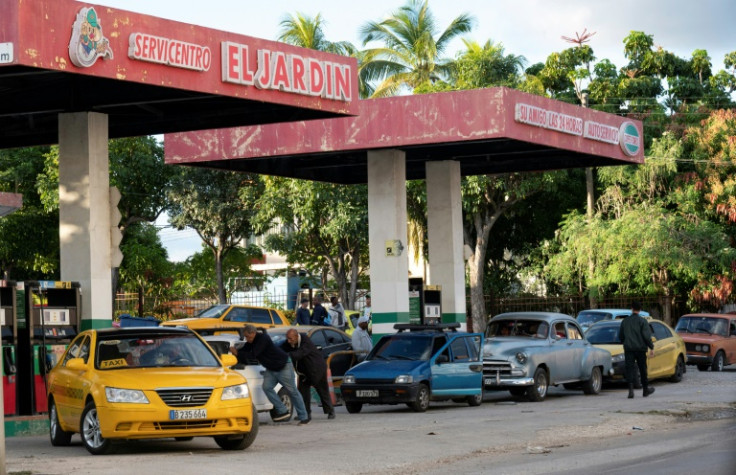
A 500 percent fuel price hike will take effect in Cuba this week, a month later than initially planned, the government of the cash-strapped island nation said Wednesday.
Finance Minister Vladimir Regueiro announced via government mouthpiece Granma that the higher prices will enter into force on Friday, March 1.
The price of electricity will rise by 25 percent from the same date for the country's biggest consumers, he added.
Havana had announced a five-fold increase in the fuel price from February 1 as part of a series of measures seeking to cut the communist-run nation's budget deficit.
But it delayed the hike after a "cybersecurity incident" last month.
A few days later, Economy Minister Alejandro Gil was relieved of his duties.
The cost of a liter of regular gasoline is to rise from 25 pesos (20 US cents) to 132 pesos, while the price of premium gasoline will jump from 30 to 156 pesos, the government said last month.
The price for the public transport sector will remain the same, however, and an increase in natural gas prices has been delayed.
Authorities have also ordered that tourists pay for fuel in foreign currency.
The nation of 11 million people is experiencing its worst economic crisis since the collapse of the Soviet bloc in the 1990s due to consequences of the coronavirus pandemic, the tightening of US sanctions in recent years, and structural weaknesses in the economy.
According to official estimates, the Cuban economy shrank by two percent in 2023, while inflation reached 30 percent. Independent experts say this is likely an underestimation.
There are chronic shortages of fuel and other basics, and the government subsidizes almost all of the goods and services consumed by Cubans.




